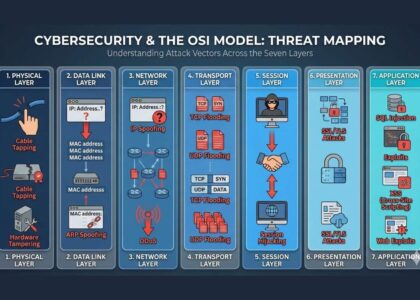Introduction
In today’s digitally connected world, the internet has become an integral part of our daily lives. From social networking to online banking, our reliance on digital platforms has grown exponentially. However, this increased connectivity has also given rise to new forms of criminal behavior, one of which is cyberstalking. Cyberstalking and online harassment are serious issues that can have profound psychological, emotional, and sometimes even physical consequences for victims.
What is Cyberstalking?
Cyberstalking involves the use of electronic communication tools, such as the internet, email, social media, or other digital platforms, to harass, intimidate, or threaten an individual. Unlike traditional stalking, cyberstalking allows perpetrators to target victims remotely, often anonymously, making it a pervasive and insidious form of harassment.
Common behaviors associated with cyberstalking include:
- Sending threatening or obscene messages repeatedly
- Monitoring someone’s online activities without consent
- Impersonating the victim online to damage their reputation
- Posting false information or spreading rumors about the victim
- Using technology to track the victim’s location
Cyberstalking can escalate over time, leading to severe emotional distress and fear for personal safety.
The Psychological Impact of Cyberstalking
Victims of cyberstalking often experience a range of psychological effects, including:
- Anxiety and Depression: Constant harassment can lead to feelings of helplessness and despair.
- Sleep Disturbances: Fear and stress may result in insomnia or nightmares.
- Loss of Trust: Victims may become wary of online interactions and withdraw from social activities.
- Post-Traumatic Stress Disorder (PTSD): In severe cases, prolonged cyberstalking can lead to PTSD, characterized by flashbacks, severe anxiety, and uncontrollable thoughts about the incident.
It’s crucial to recognize these signs and seek professional help when needed.
Legal Framework in India
In India, cyberstalking is addressed under various sections of the law:
- Section 354D of the Indian Penal Code (IPC): This section criminalizes stalking, including cyberstalking, where a man follows a woman and contacts her despite clear indications of disinterest. The punishment can extend up to three years of imprisonment and a fine.
- Section 67 of the Information Technology Act, 2000: This section deals with publishing or transmitting obscene material in electronic form, which can be applicable in cases of cyberstalking involving explicit content.
While these laws provide a framework for addressing cyberstalking, enforcement can be challenging due to the anonymity of the internet and the evolving nature of digital crimes.
Preventive Measures
Protecting oneself from cyberstalking involves proactive steps:
- Maintain Privacy Settings: Regularly update privacy settings on social media platforms to control who can view your information.
- Be Cautious with Personal Information: Avoid sharing sensitive details like your address, phone number, or daily routines online.
- Use Strong Passwords: Implement complex passwords and change them regularly to prevent unauthorized access.
- Monitor Online Presence: Regularly search your name online to identify any unauthorized use of your information.
- Educate Yourself: Stay informed about the latest cybersecurity threats and how to counter them.
Implementing these measures can significantly reduce the risk of becoming a victim of cyberstalking.
What to Do If You’re Being Cyberstalked
If you suspect you’re a victim of cyberstalking:
- Document Everything: Keep records of all communications, including emails, messages, and social media interactions.
- Report to Authorities: File a complaint with the local police and provide them with the documented evidence.
- Inform Online Platforms: Report the abusive behavior to the respective online platforms; many have policies against harassment.
- Seek Support: Talk to friends, family, or professional counselors to cope with the emotional impact.
- Legal Action: Consult a legal professional to understand your rights and the possibility of obtaining restraining orders or other legal remedies.
Taking swift action can help mitigate the effects of cyberstalking and bring the perpetrator to justice.
Conclusion
Cyberstalking and online harassment are serious offenses that can have lasting impacts on victims. Awareness, preventive measures, and understanding the legal avenues available are crucial in combating this modern-day menace. By staying informed and vigilant, individuals can protect themselves and contribute to a safer online environment for all.






